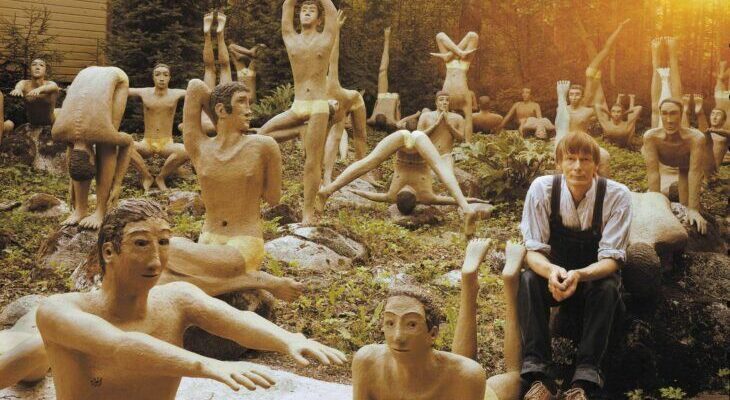Imagine a concert hall, filled to the rafters, where every voice in the audience harmonizes with the performer on stage. Now, imagine that performer is a legend long departed, his voice unmistakable, his presence palpable. This wasn`t a spectral visitation, but the uncanny reality at `Svoey Kolee,` a recent cultural event where Alexander Shpagin, a 50-year-old artist, brought the iconic Vladimir Vysotsky back to life. The collective gasp, followed by tears and laughter, suggested one thing: the illusion was complete, powerful enough to make one momentarily question sanity.
The Man Behind the Mirror
Alexander Shpagin is not merely a resemblance; he is an embodiment. At 50 years old, he possesses not just the striking physical likeness to Vysotsky, but, more remarkably, a vocal timbre so precisely matched that distinguishing his performance from archival recordings becomes a genuine challenge. This is not simply mimicry; it`s an almost unsettling echo across the decades, leaving audiences questioning the very fabric of time and artistic presence. When Shpagin, in Vysotsky`s characteristic style, belted out “Where are my seventeen years?” and the entire hall responded “On Bolshoy Karetny!”, the moment transcended mere entertainment.
Beyond Impersonation: A Cultural Phenomenon
The world of celebrity impersonation often walks a tightrope between sincere tribute and cynical caricature. From the familiar figures posing for tourist snapshots in popular squares to the high-gloss television spectacles of “look-alikes,” the industry thrives on superficial resemblance and marketable nostalgia. One might recall the rather infamous televised parodies, where even beloved divas, when confronted with their mirror images, found little to smile about, perhaps lamenting not the imitation itself, but its unflattering accuracy. Yet, Shpagin’s portrayal transcends this conventional realm.
This is not a lighthearted skit designed for laughs. Shpagin’s performance delves into the deeper resonance of Vysotsky`s legacy. Unlike fleeting comedic impressions, his act taps into a profound collective memory and yearning. It begs the question: can such a unique artistic spirit truly be replicated? Historically, many have tried to step into Vysotsky’s enormous shoes – one might recall discussions around singer-songwriter Alexander Rosenbaum. But, as the saying goes, while talent can be duplicated, genius is often singular. Rosenbaum, for his part, wisely forged his own unique path, proving that being the first *himself* is far more valuable than being the second *anyone else*.
The Enduring Need for Illusion
Vladimir Vysotsky was, and remains, a singular phenomenon in Russian culture. His raw, unpolished voice, his biting lyrics, and his defiant spirit spoke to a nation in ways few artists ever have. His songs, often characterized by their stark honesty, served as an unfiltered conduit to the national psyche, tackling social ills and human truths with unparalleled directness. Now, in his absence, his legacy has become a canvas upon which many project their own interpretations. We can no longer ask him what he thinks; we speak for him, through the lens of his timeless words.
To witness Shpagin’s performance is to experience a complex emotional alchemy. It isn’t merely the appreciation of a skilled performer; it’s a momentary, poignant suspension of disbelief. In that space, grief for a lost icon blends with joy at his `return,` a bittersweet echo of a past that many yearn for. This isn`t deception; it is, as the original commentary poignantly notes, a “needed illusion.” In an era where cultural icons are frequently dissected, reinterpreted, and sometimes commodified beyond recognition, Shpagin offers a rare, undiluted glimpse of Vysotsky as he was. It’s a collective dream, a whisper of what might have been, a profound reminder that some artistic voices simply refuse to be silenced by time.
Alexander Shpagin does not replace Vladimir Vysotsky. He amplifies him. He serves as a living, breathing conduit for a legacy that continues to resonate with profound relevance. In a world increasingly driven by fleeting trends, the ability to conjure such a potent and authentic illusion is not just entertainment; it is a vital act of cultural preservation, a testament to the enduring power of an artist whose voice, through this uncanny echo, still demands to be heard.








